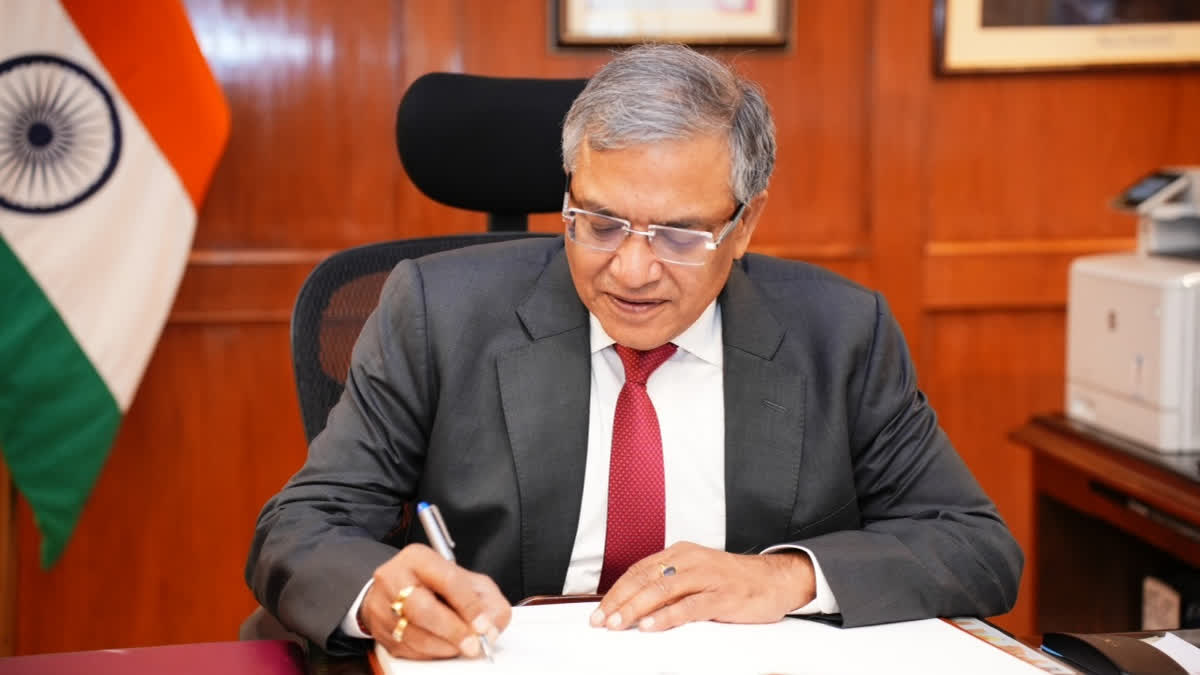New Delhi: In a late-night announcement by the law ministry on Monday, Election Commissioner Gyanesh Kumar was appointed as the next Chief Election Commissioner succeeding Rajiv Kumar.
The selection panel headed by Prime Minister Narendra Modi went ahead with its decision, ignoring the dissent note by Congress leader and Leader of Opposition in Lok Sabha, Rahul Gandhi, who was part of the three-member panel.
Gandhi had asked the government to defer its decision on the new CEC till the Supreme Court concluded its hearing on a petition challenging the composition of the selection panel.
The selection panel met in the South Block office of the Prime Minister on Monday evening. Besides Modi and Gandhi, Home Minister Amit Shah is the third member of the selection panel. According to reports, Gandhi’s dissent note was included in the meeting, however, the final decision on the new CEC and EC posts was anyway taken.
Kumar is the first CEC to be appointed under a new law, the Chief Election Commissioner And Other Election Commissioners (Appointment, Conditions of Service, and Term of Office) Act, 2023. The new Act replaced the Chief Justice of India on the Selection Committee with a Union Minister nominated by the Prime Minister.
Several petitions challenging the validity of the new Act were filed in the Supreme Court. They sought to put on hold the appointment of two Election Commissioners in March 2024 under the new Act, however, the apex court declined to stay the appointments but agreed to hear the matter. The court has yet to give its final decision on the matter.
Who is Gyanesh Kumar?
A 1988-batch Kerala cadre IAS officer, Gyanesh Kumar had a significant stint with the Union Home Ministry. Born on January 27, 1964, Kumar played a key role in implementing decisions following the abrogation of Article 370 of the Constitution in Jammu and Kashmir in 2019. As an Additional Secretary, he was also responsible for handling documents related to the Supreme Court case on the Ram Temple in Ayodhya.
Kumar is the senior of the two commissioners on the three-member panel that was led by Rajiv Kumar till he demitted office on Monday. He took charge as an election commissioner on March 15, 2024.
After completing his B.Tech in Civil Engineering from the Indian Institute of Technology (IIT), Kanpur, he studied Business Finance at ICFAI, India and Environmental Economics at HIID, Harvard University, US.
He has worked in the government of Kerala as the assistant collector of Ernakulam, sub-collector of Adoor, managing director of the Kerala State Development Corporation for SC/ST, and municipal commissioner of the Corporation of Cochin, besides holding other posts. As a secretary to the government of Kerala, Kumar handled diverse departments, such as finance resources, fast-track projects and the public works department.
Will oversee these elections
During his tenure as the 26th CEC, Kumar will oversee the Bihar Assembly polls later this year, and the Kerala and Puducherry Assembly polls in 2026. Similarly, he will oversee the Assembly polls in Tamil Nadu and West Bengal, which are also due in 2026. His term will run till January 26, 2029, days before the EC is expected to announce the schedule of the next Lok Sabha election.
Vivek Joshi appointed as Election Commissioner
Vivek Joshi, a 1989-batch Haryana-cadre Indian Administrative Service (IAS) officer, was appointed as election commissioner. Born on May 21, 1966, Joshi (58) will serve on the poll panel till 2031. According to law, a CEC or an EC retires at the age of 65 or can have tenure in the poll panel for six years.
Earlier, Sushil Chandra, who was serving as the Central Board of Direct Taxes (CBDT) chairman, was appointed as an EC. He resigned from the CBDT before joining the poll authority. Joshi, a former Haryana chief secretary, has been on central deputation since January 2019. (With inputs from agencies).
Read More
Hastily-Taken Decision, Centre Keen On Circumventing SC's Scrutiny: Cong On CEC's Appointment



